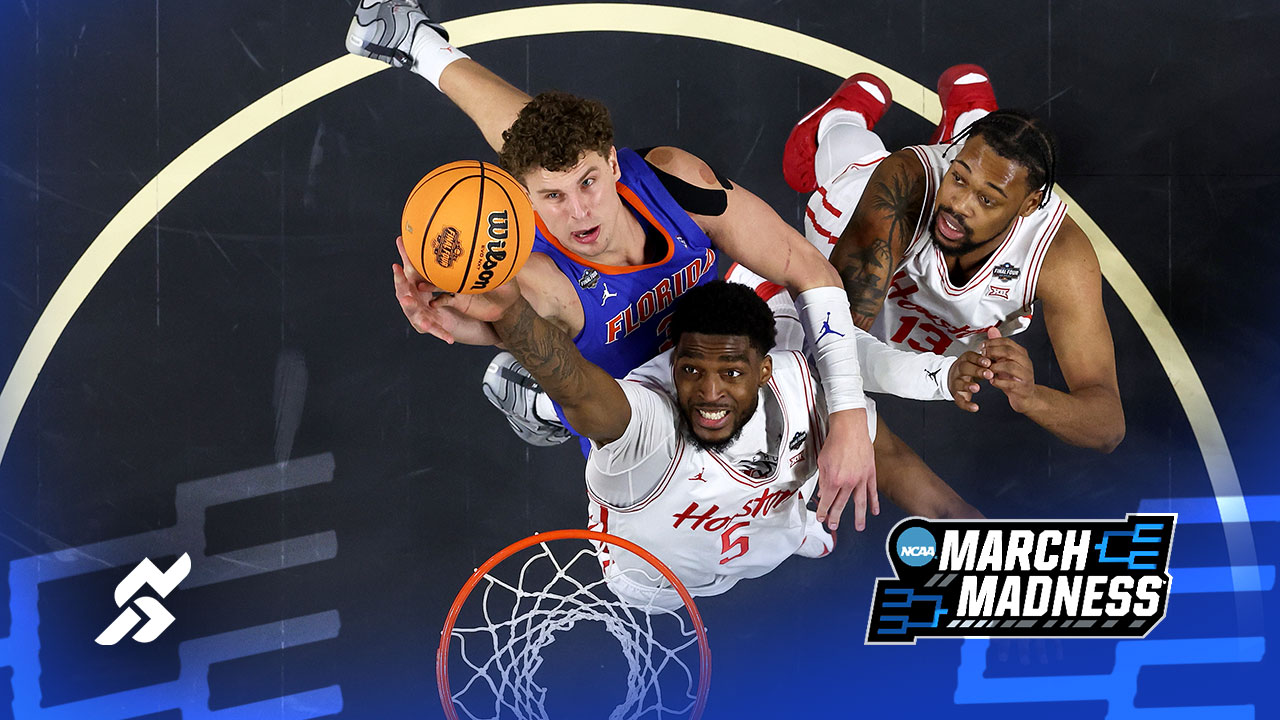
The spending gap between sportsbooks and the new kids on the block—sports prediction markets—shrunk over the past month, while March Madness results continued a sour financial run for DraftKings and FanDuel.
Their new rival Kalshi facilitated about $500 million in sports event contracts regarding who would win the 2025 men’s and women’s NCAA tournaments, representing 16% of what the American Gaming Association (AGA) predicted traditional sportsbook operators like DraftKings and FanDuel would see ($3.1 billion).
Kalshi’s volume was more than 15 times higher than it managed for the Super Bowl, when the company accepted a relatively paltry $27 million in trading. That was only 2% of the handle of what U.S. sportsbooks expected to draw for the big game, according to AGA data.
Unlike sportsbooks, which are vulnerable when favorites dominate as they did this March Madness, Kalshi pits users against one another. It makes its money primarily from trading fees.
DraftKings and FanDuel were already reeling from unwanted sports outcomes, having missed their initial revenue targets this past NFL season on the strength of favorites performing better than usual. A similar favorite-friendly scene unfolded in the NCAA tournaments, culminating in No. 1 seed Florida earning the spoils in the men’s final Monday after popular pick UConn triumphed in the women’s championship game Sunday.
But Kalshi’s challenge of established powers could meet resistance soon.
At least five states have already issued cease-and-desist orders to halt what they claim is Kalshi’s illegal and unregistered gambling operation that began at the start of 2025. Another, Massachusetts, subpoenaed Kalshi business partner Robinhood, while Connecticut recently said it has an active probe looking into the company. More jurisdictions could take legal action soon.
Kalshi responded to the first pair of cease-and-desist orders, from Nevada and New Jersey, by suing the states and refusing to take its exchange offline. A Kalshi official said taking the exchange offline under state order would put it at risk of violating federal Commodity Futures Trading Commission (CFTC) protocol. The CFTC is currently the de facto overseer of the new product type.
Until President Donald Trump took office, Kalshi fought the CFTC in court and tried to invalidate the agency’s regulatory actions. Now, Kalshi sees the CFTC as its best shot at a long-term business edge over sportsbooks, given Donald Trump Jr.’s role as a company advisor and Kalshi board member Brian Quintenz’s nomination for agency chair.
The CFTC is holding a late-April roundtable to determine its official policy on sports prediction markets—and whether they are technically a form of sports betting. However, CFTC public comments ahead of the roundtable touting market freedom suggest it is a foregone conclusion the agency will favor Kalshi and similar platforms such as Crypto.com.
If futures trading does gain legal credibility without platforms needing to pay state taxes like sportsbooks, then sportsbook operators might simply offer futures exchanges of their own. DraftKings CEO Jason Robins said in February he would consider an embrace of futures markets if it does not create a risk for the company.
“I don’t view it as a threat,” Robins said. “It increases the total addressable market for people who like those types of products, which is a good thing.”
DraftKings and FanDuel declined to comment on this story. DraftKings director of sportsbook operations Johnny Avello told LSR that “this has not been the greatest of tournaments” for the company.
The AGA has said Kalshi’s emergence is worrisome for the industry, however, in part because of a lack of regulation relative to what sportsbooks face. One example the lobbying group has pointed out is that Kalshi’s age restriction is 18 rather than 21.
Kalshi did not respond to a comment asking how many of its users are under 21 or reside in states where sportsbooks are illegal outside of tribal land. A Kalshi official said last month in an email that there were no plans to revise its age policy.
The New York-headquartered company advertises to all 50 states and has tried to add social network qualities to its platform that appeal to a younger audience. There is a comment section at the bottom of every listing on Kalshi’s exchange where people can share “tickets” that include odds at time of purchase, cost basis and final value.
Additionally, it has benefited from promotions by highly followed social media aggregation accounts, including Pop Crave (2 million followers on X) and The Spectator Index (2.9 million followers on X).
